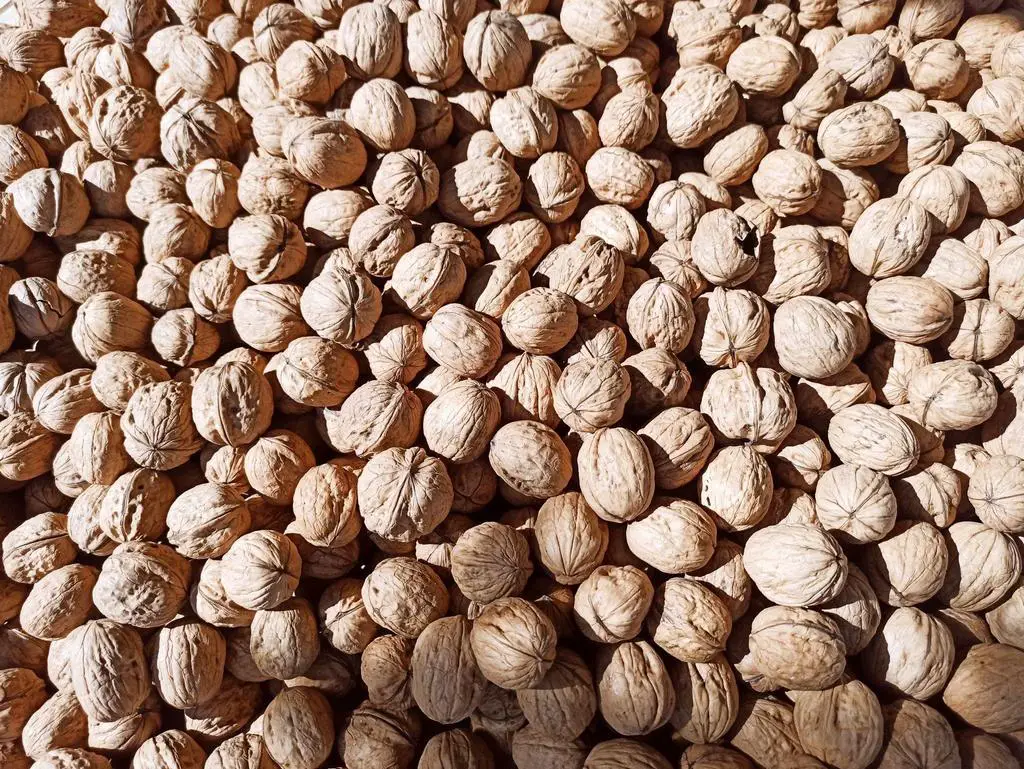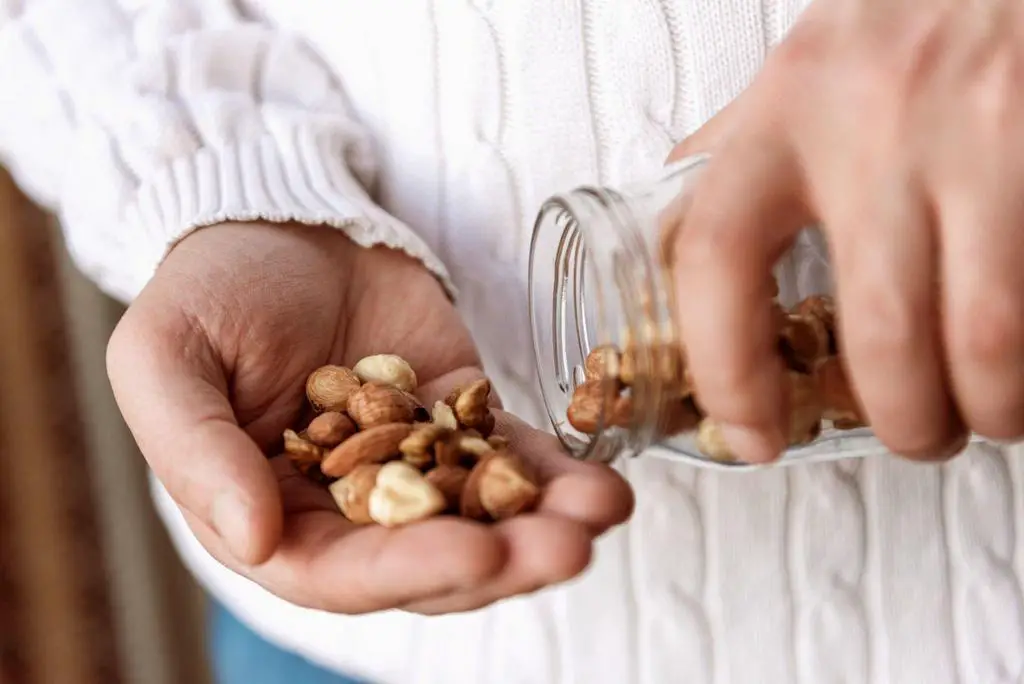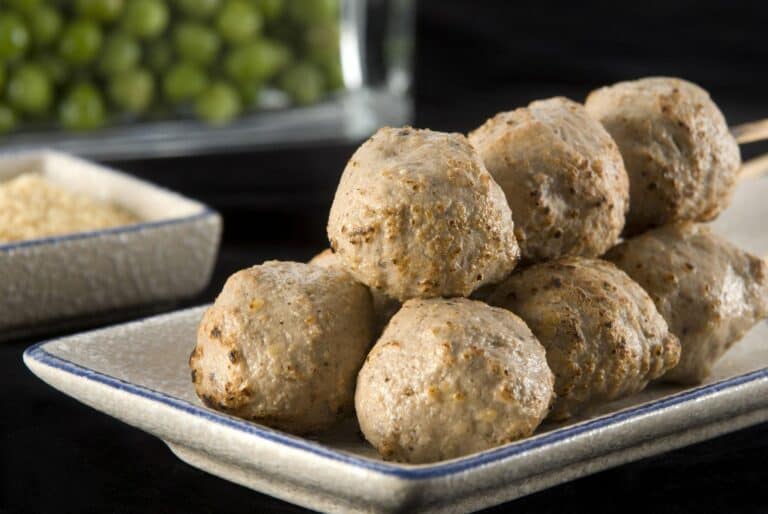Can You Eat Raw Walnuts? Are Raw Walnuts Poisonous?

Walnuts are a delicious and nutritious snack that many people enjoy. They’re full of healthy fats, protein, fiber, and various vitamins and minerals. However, you might be wondering if you can eat raw walnuts or if they’re poisonous. After all, some nuts, like raw cashews, contain a toxic substance that can cause serious health problems if consumed.
So, what about raw walnuts? Can you eat them safely, or should you avoid them altogether? Yes, you can eat raw walnuts. Walnuts can be eaten raw or toasted to bring out more of their flavor. Soaking walnuts in salty water for about 8-10 hours not only helps digestion and nutrient absorption but also improves their taste
In this article, we’ll talk in depth about raw walnuts so you can decide if you want to add them to your diet or not.
Understanding Walnuts and Their Nutritional Value
When it comes to nuts, walnuts are often regarded as one of the healthiest options out there. But what makes raw walnuts so special?
Raw walnuts are loaded with essential nutrients that our bodies need to function properly. They are particularly rich in omega-3 fatty acids, which are known for their heart-healthy benefits. Raw walnuts also contain a good amount of protein, fiber, and several important vitamins and minerals.
One of the key nutrients found in raw walnuts is alpha-linolenic acid (ALA), which is an essential omega-3 fatty acid that our bodies can’t produce on their own. ALA has been shown to help lower cholesterol levels and reduce inflammation, which can help prevent a variety of chronic diseases.
Raw walnuts are also a great source of vitamin E, which is a powerful antioxidant that helps stop free radicals from damaging our cells, and magnesium, which is important for strong bones and muscles.
Raw walnuts have a lot of good nutrients, and they are also a great source of healthy fats. While many people are wary of eating nuts due to their high calorie and fat content, the fats found in raw walnuts are actually beneficial to our health.
These fats can help lower cholesterol levels, reduce inflammation, and improve brain function. So, while it’s true that raw walnuts are calorie-dense, they can still be a healthy addition to a well-rounded diet in moderation.
Benefits of Eating Walnuts

Raw walnuts are a great food to add to your diet because they are full of nutrients and have many health benefits. For starters, they are a great source of healthy fats, including monounsaturated and polyunsaturated fats, which have been linked to lower cholesterol levels and a reduced risk of heart disease. In fact, just a handful of raw walnuts can provide you with up to 90% of your daily recommended intake of healthy fats.
Aside from their healthy fat content, raw walnuts are also a great source of antioxidants, which can help protect your body against oxidative stress and inflammation. Some of these antioxidants are vitamin E, polyphenols, and melatonin, all of which have been shown to fight cancer and reduce inflammation. One ounce of oatmeal has about 2 grams of fiber, which can help with digestion and keep you from getting constipated.
But that’s not all. Raw walnuts are also a great source of vitamins and minerals, like magnesium, phosphorus, and manganese. For example, magnesium is important for healthy bone growth and can help control blood sugar levels.
Manganese, on the other hand, is important for brain health and can help reduce inflammation in the body. Phosphorus, on the other hand, is essential for healthy cell growth and repair and can help support strong bones and teeth.
Can You Eat Raw Walnuts?
Many people wonder whether it’s safe to eat raw walnuts, especially since other types of nuts like almonds and cashews are typically sold roasted or otherwise processed.
The short answer is yes, you can eat raw walnuts, but there are a few things you should know before you do.
It’s important to understand that raw walnuts can sometimes contain a toxic substance called aflatoxins, which are produced by certain types of mold. Aflatoxins can cause liver damage and have been linked to an increased risk of liver cancer.
But the risk of getting sick from aflatoxin in raw walnuts is usually pretty low, especially if you buy them from a reliable source.
TIPS 
To minimize the risk of aflatoxin exposure, you need to store raw walnuts properly. Keep them in an airtight container in a cool, dry place, and avoid exposing them to moisture or humidity.
You can also reduce the risk of contamination by purchasing organic raw walnuts, which are less likely to contain aflatoxins than conventionally-grown nuts.
If you do decide to eat raw walnuts, it’s also worth noting that they have a slightly different flavor and texture than roasted walnuts. Raw walnuts are typically softer and creamier, with a more subtle flavor. Some people find them to be milder and less bitter than roasted walnuts, while others prefer the nutty, roasted flavor of their cooked counterparts.
Ultimately, whether or not you enjoy raw walnuts comes down to personal preference, but there’s no reason to avoid them if you’re looking for a healthy, nutrient-rich snack.
Are Raw Walnuts Poisonous?
Some people might worry that eating raw walnuts isn’t safe because they could be poisonous. So, are raw walnuts poisonous?
The answer is no. Raw walnuts are not poisonous, and they are perfectly safe to consume. In fact, raw walnuts are considered a nutrient-dense food and are an excellent source of protein, healthy fats, fiber, vitamins, and minerals. However, it is essential to be aware of some risks associated with raw walnuts.
One of the primary risks associated with raw walnuts is their potential to contain harmful bacteria, such as Salmonella and E. coli. These bacteria can cause food poisoning and lead to symptoms such as nausea, vomiting, diarrhea, and fever.
To lower the chance of getting sick from bacteria, it’s best to buy raw walnuts from a reliable source and store them in a cool, dry place.
Health Risk and Side Effects of Eating Raw Walnuts
Raw walnuts have a lot of health benefits, but if you eat too many of them or don’t take the right precautions, it could hurt your health. Some of the health problems that could happen if you eat raw walnuts are allergies, digestive problems, and toxicity.
One of the most common health risks associated with raw walnuts is allergies. Walnuts are one of the most common tree nut allergens, and eating them can cause itching, swelling, and even anaphylaxis in people who are susceptible. It’s important to be careful when eating raw walnuts and see a doctor if you think you might be allergic to them.
Another potential side effect of consuming raw walnuts is digestive discomfort. Raw walnuts contain high amounts of fiber, which can cause gas, bloating, and diarrhea in some individuals. To avoid digestive problems, it’s best to start with a small amount of raw walnuts and gradually add more as time goes on.
Finally, raw walnuts contain a natural compound called tannin, which can cause toxicity if consumed in excessive amounts. Tannin can make it hard for the body to absorb certain nutrients and can cause nausea, vomiting, and constipation, among other things. It is recommended to consume raw walnuts in moderation and avoid overconsumption.
However, the levels of tannins in raw walnuts are generally not high enough to cause significant health problems. Still, individuals who are sensitive to tannins may want to limit their intake of raw walnuts or opt for roasted walnuts instead.
How to Safely Consume Raw Walnuts
Raw walnuts can be a healthy addition to your diet, but you need to be careful about how you eat them to avoid getting sick. Here are some tips for safely consuming raw walnuts:
- Purchase from a reputable source: When buying raw walnuts, choose a reputable supplier that has a good track record of quality control. Look for nuts that are free of cracks, holes, and discoloration. Make sure the packaging is intact and has not been tampered with.
- Store them properly: Raw walnuts can spoil quickly if they’re not stored properly. Store them in an airtight container in a cool, dry place, such as your pantry or refrigerator. Make sure to keep them away from moisture, heat, and light.
- Wash them before eating: Even though raw walnuts are not typically washed before packaging, it’s a good idea to rinse them off before consuming them. This will help remove any dirt or bacteria that may be on the surface of the nuts.
- Don’t eat moldy nuts: If you notice any mold on your raw walnuts, don’t eat them. Mold can produce toxic substances that can be harmful to your health. It’s best to discard any nuts that have visible mold on them.
- Eat them in moderation: Raw walnuts are high in calories, so it’s important to consume them in moderation. Aim for no more than a handful (about 1 oz or 28 grams) per day. This will provide you with all the health benefits of raw walnuts without going overboard on calories.
If you follow these tips, you can eat raw walnuts safely and get all of the health benefits they have to offer.
Raw Walnuts vs. Roasted Walnuts: Which One is Better?
When it comes to choosing between raw and roasted walnuts, there are several factors to consider. Both types of walnuts have their own unique flavors, textures, and nutritional profiles, making it difficult to determine which one is better. So, let’s take a closer look at the differences between raw and roasted walnuts.
Raw walnuts aren’t processed and haven’t been heated, so people who care about their health often choose them. Raw walnuts are a great source of healthy fats, fiber, protein, and a variety of vitamins and minerals. They also have a mild, slightly sweet flavor and a soft, chewy texture. One of the best things about raw walnuts is that most of their natural nutrients are still there because they are not roasted at very high temperatures.
On the other hand, roasted walnuts are cooked at high temperatures, which can change their flavor and texture. Salting roasted walnuts can make them taste better but also add more sodium to your diet. However, roasting can also make walnuts more crunchy and add a slightly smoky flavor. Some people find that roasting walnuts takes away some of their natural bitterness and makes them taste better.
In terms of nutritional value, both raw and roasted walnuts are great sources of healthy fats, protein, and fiber. But roasting walnuts can make some of their natural oils go rancid, which can make them less healthy overall. Roasted walnuts may also have sodium or other flavorings added, which can make the diet as a whole less healthy.
How Many Raw Walnuts Should You Eat in a Day?
Raw walnuts are a nutrient-dense food that can help your health in many ways, like lowering your risk of heart disease, making your brain work better, and keeping your skin healthy. However, like any food, it’s important to consume them in moderation. So, how many raw walnuts should you eat in a day?
The recommended serving size of raw walnuts is about 1 ounce or 28 grams, which is equivalent to a small handful or about 7 whole nuts. This amount provides around 190 calories, 4 grams of protein, 2 grams of fiber, and 18 grams of fat, mostly in the form of heart-healthy monounsaturated and polyunsaturated fats.
While there is no set limit to the number of raw walnuts you can eat in a day, it’s important to remember that they are high in calories and fat. Overconsumption of any food, including raw walnuts, can lead to weight gain and other health problems. Therefore, it’s recommended to stick to the serving size and not go overboard.
It’s also worth noting that raw walnuts are just one part of a healthy and balanced diet. They should be consumed in combination with other nutrient-dense foods such as fruits, vegetables, whole grains, and lean proteins to ensure that your body is getting all the nutrients it needs.
If you have any concerns about how many raw walnuts you should be consuming in a day, it’s always best to consult with a registered dietitian o
How to Incorporate Raw Walnuts into Your Diet
Raw walnuts are a healthy, easy-to-use food that can be added to many different meals and snacks. Whether you’re looking to add more nutrients to your diet or simply looking for a tasty new ingredient to try, there are many ways to incorporate raw walnuts into your daily routine.
Raw walnuts are easy to add to your diet if you just eat them as snacks throughout the day. Raw walnuts make a great portable snack that can be eaten on their own or mixed with other nuts and dried fruits for a tasty trail mix. You can also sprinkle raw walnuts on top of salads or yogurt for an added crunch and nutty flavor.
Another way to incorporate raw walnuts into your diet is by using them as a key ingredient in baked goods. Raw walnuts can be chopped and added to cookies, muffins, and cakes for added flavor and texture. They can also be used as a substitute for other nuts in recipes that call for almonds or pecans.
Raw walnuts can also be incorporated into savory dishes, such as pasta or stir-fries. You can chop raw walnuts and sprinkle them on top of pasta dishes, or add them to a stir-fry for extra protein and healthy fats. Raw walnuts can also be used to make a variety of dips and sauces, such as pesto or walnut butter.






